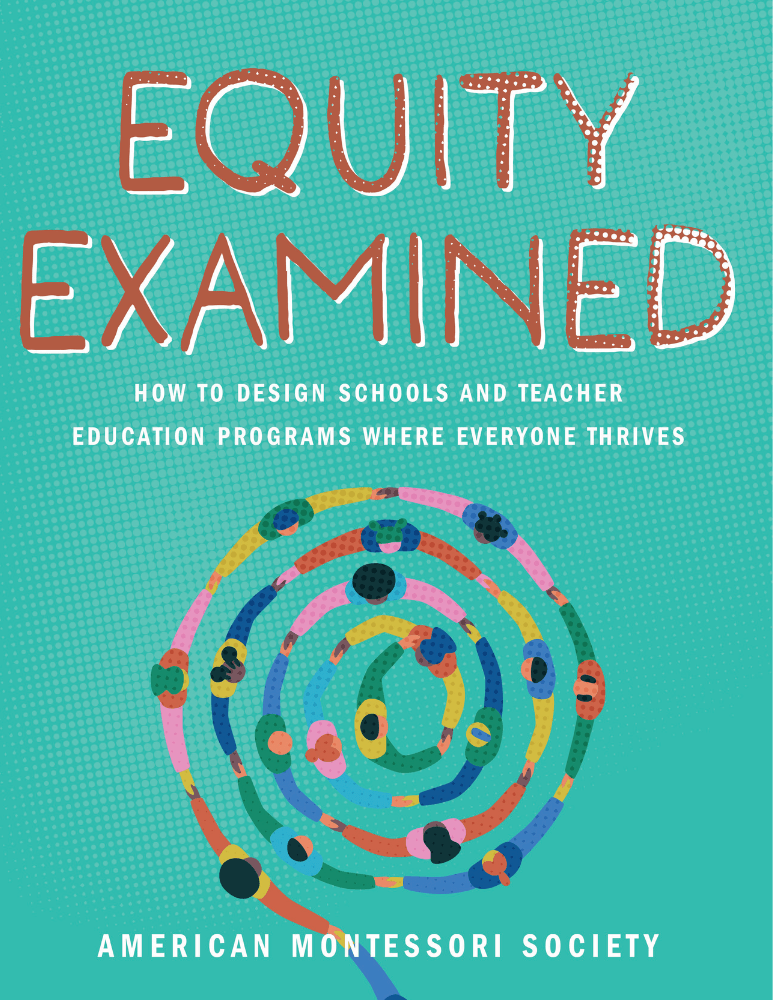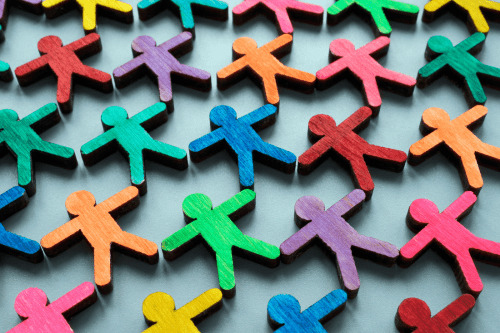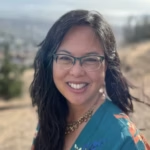
This essay appears in the AMS special publication, Equity Examined: How to Design Schools and Teacher Education Programs Where Everyone Thrives. (Available to AMS members only).
Become a member today to gain access to the full digital publication.
“ALL learning is unlearning.” This quote from scholar and social justice advocate Kevin Kumashiro brought my work as an Elementary Level Coordinator for the teacher education program at Saint Mary’s College of California into focus. During Kumashiro’s Leading for Justice workshop, I met other leaders in schools of education across the U.S. and Canada who were committed to creating programs that would help teachers create liberated learning environments.
It is the job of our teacher education programs to facilitate the transformation of the teacher that Dr. Montessori wrote about: “An ordinary teacher cannot be transformed into a Montessori teacher, but must be created anew, having rid herself of pedagogical prejudices. The first step is self-preparation of the imagination, for the Montessori teacher has to visualise a child who is not yet there, materially speaking, and must have faith in the child who will reveal himself through work.”
This is a whole learner approach. This is intellectual work, spiritual work–and it is hard. Kumashiro’s workshop challenged us to “trouble” notions of education–to investigate the foundations of the U.S. education system and its political underpinnings. If we want to understand what a system is meant to produce, we have to simply look at the products. If the products are inequitable outcomes and experiences, we have to change the systems. Training programs train guides to be scientists (as Montessori wrote, “the vision of the teacher should be at once precise like that of the scientist…”) who observe the environment and continuously look to improve it. If what a Montessori environment
produces are inequitable outcomes, we are charged to prepare for equitable outcomes instead.
Montessori learning environments are not immune to biases and cultural preferences. While data suggests that Montessori schools fare better in terms of statistics that measure inequitable outcomes for children of the global majority, there are still gaps and preferences highlighted in the numbers. Just as one example, a study of discipline
data (Brown and Steele, 2015) revealed disproportionate rates for African American students enrolled in Montessori school and traditional schools in the U.S. Southeast as compared with their White peers. While the relative rate index was lower in Montessori schools, there was still some disparity.
When faced with this data, I realized I had to unlearn what I had learned about our Montessori commitment to peace education. I knew that I had to trouble my notion of peace and how to get there. I began to dig deeper into works that called for justice. I studied the work of Paulo Freire, bell hooks, and Beverly Daniel Tatum. The common thread I found amongst these writings was that we Montessorians needed to connect more deeply to ourselves and to our students.
For me, that meant troubling my identity as a cisgender, educated, middle-class, Christian, Asian woman. I had to understand how I benefited and profited from the culture of white domination in this country that separates us into false hierarchies. I had to understand how the struggle of other marginalized peoples was my struggle too. I had
to understand how liberation for all was liberation for me as well. True connection happens when we look beyond prescribed notions of who we are based on our racialized identities and identity structures. Once I was clear on who I was, I understood who I was called to be. Once that was clear, I knew what I was called to do.
JEDI (justice, equity, diversity, inclusion) work is universal work. I had to unlearn that this work could be done in containers–for example, in a single session in a course, or in a single course in a program. JEDI work had to become what I was and who I was. I began by thinking about every class I taught–history, mathematics, classroom leadership. I wondered and reflected on how to focus on justice in each class. I troubled who was in the curriculum and who was not. I was fortunate to work with colleagues at Saint Mary’s College who had already radically reimagined and shifted the way they delivered their own curriculum (for teacher educators in the state high school credential program)–by focusing on embedding readings, assignments, and assessments to foster the development of critical consciousness. This was not just a class, but a way of being (Raygoza et al., 2020). It helped me to be in community with these colleagues as I reenvisioned how to create a program that developed critically conscious Montessori educators.
While my journey in my TEP was cut short when our program closed in 2019, my work has just begun. As Co-Chair of the AMS JEDI Committee, I hope to help leaders throughout our organization and movement understand how to unlearn, how to trouble, and how to change.


